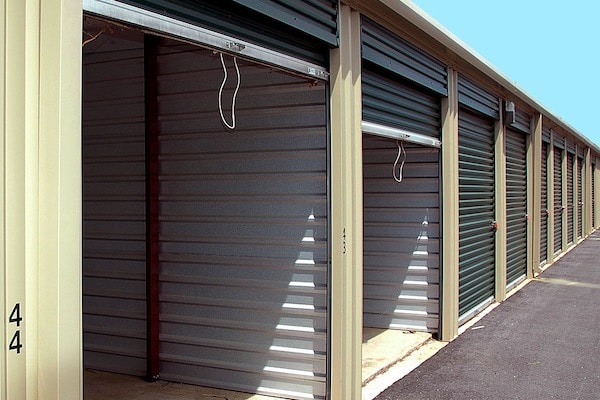
Some of my clients ask whether they should keep some of their possessions in a self-storage unit. I’ve written before about why you should not use one, but there are many factors to consider. This includes whether you are using the self-storage unit temporarily or permanently, what you want to store, and why.
Temporary Storage
Self-storage units are a great option if you need a place to store your stuff temporarily. These situations would include:
- When moving house – during the staging process of your old home while waiting to move into your new home.
- During a home renovation.
- When a student returns home for the summer.
- During long-term travelling or living abroad for a few months.
- When settling an estate.
If you are considering temporary storage, do a cost analysis. Look at the cost of the storage unit and compare that to the value of the items. In addition, think about the time it would take you to sell and re-purchase the items in storage. For example, if you are moving abroad for a few years, it may be worth storing sentimental items and unique or antique furniture. It’s probably not worth keeping the 10-year-old refrigerator.
Permanent Storage
With the ever-increasing price of real estate in major urban centres, renting a storage unit for your “stuff” can be less expensive than buying a bigger home. But should you? I do not recommend using the storage unit to hold clutter because you will “deal with it later.” People tend to forget what they have, and “later” never happens.
However, if the storage unit is well organized and what goes into permanent storage is worth storing, it may be worthwhile. For example, you could use a storage unit to store items you only access a few times per year, such as off-season car tires, archived files, or holiday decorations. Even things used more frequently, such as sporting equipment (e.g. kayaks, skis, etc.), could be stored in off-site storage, creating more living space in your home.
Choosing a Self-Storage Unit
Whether you’re using a storage facility on a temporary or permanent basis, here are a few things you should look for when choosing one.
Location and access. If your self-storage unit is not convenient, you won’t access it often. For storing skis, you might choose a place that is en route to the ski hills. If you’re storing holiday decorations, you might choose a location closer to your home. Check the hours of operation too. If you enjoy night-skiing, don’t choose a facility that closes at 6 pm.
Quality. Not all self-storage units are created equal. Visit the site before committing. Look for cleanliness. Note any foul odours, and remember that overwhelming “nice” odours may be covering up problems. Ask about their pest control program. If you want a climate-controlled locker, ask if it has its own controls and monitoring system.
Security. Ensure that locker doors close securely. Ask who has access to the facility. If the staff has access to individual lockers, they should have submitted to background checks. Look for surveillance cameras and ask if it is live-feed or recorded footage. Find out how the facility would contact you if there is a problem with your unit and how they would proceed if you were unavailable.
Safety. Check for intercoms in the hallways. Can you contact security personnel if you need help? Look for any corners or hallways out of view by security cameras. Ensure there is adequate lighting. Stairwells and elevators should be well-lit and in good condition. Are there trolleys available? Will staff help you lift and transport items if needed?
Cost. The cost of a storage locker is like real estate – it can be more expensive in the more populated & convenient areas of the city. You shouldn’t pay more for self-storage than necessary, but the cost isn’t the only factor. You might want to pay more for a facility closer to your home or one with staff that can help you move things. Climate-controlled storage is more expensive, but it helps retain the quality of certain possessions (e.g. electronics, wooden furniture, artwork, etc.). Each person will have to weigh their storage needs with their budget in mind to find the right balance.
Preparing Your Items for a Storage
Clean and inventory. If required, clean items before you put them into storage – especially long-term storage. Create an inventory of everything and include photographs. Ideally, you should include each item’s approximate current and replacement value on your list.
Get insurance quotes. Start with your homeowners’ insurance policy. Inquire if they cover possessions stored in an off-site self-storage unit. If so, you may be able to add this coverage for a minimal monthly amount. Some self-storage companies will provide insurance in addition to the rental fees, but it may be more expensive and not adequate for your needs.
Organize and label. Think about how to place items in your unit. Put less frequently used items in the back and more frequently used ones in the front. Create aisles within your unit so you can easily access all boxes. Label all boxes and bins with labels facing out. You might consider using a numbering system so that you can easily find your items, but potential thieves cannot.
If you need advice or assistance with a self-storage unit, Out of Chaos can help. Contact us through our website today.
Image by Paul Brennan from Pixabay
